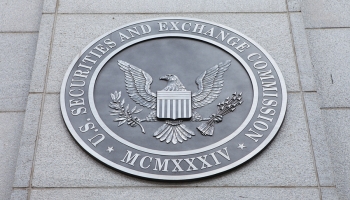SEC chairman calls for ESG issues to be considered separately
Has warned that combining environmental, social and governance (ESG) factors into a single rating or score can result in “imprecise” investment analysis
- |
- Written by Banking Exchange staff

The chairman of the US Securities and Exchange Commission (SEC) has warned that combining environmental, social and governance (ESG) factors into a single rating or score can result in “imprecise” investment analysis.
Jay Clayton made the comments at a meeting of the regulator’s Asset Management Advisory Committee last month, following recent recommendations made to the SEC regarding ESG disclosure.
Clayton said he believed that “in many cases one or more ‘E’ issues, ‘S’ issues, or ‘G’ issues are material to an investment decision”.
But he added he had “not seen circumstances where combining an analysis of E, S and G together, across a broad range of companies, for example with a ‘rating’ or ‘score’, particularly a single rating or score, would facilitate meaningful investment analysis that was not significantly over-inclusive and imprecise”.
Clayton said he had requested engagement on this topic from active portfolio managers with track records.
Many leading data providers, including MSCI and Morningstar, have been developing ESG scoring methods for the past few years, using analysis of balance sheets and corporate activity to determine ratings.
This has led to the creation of dozens of ESG-themed indices with company weightings tilted in favor of those with higher scores. Many exchange-traded fund providers have in turn launched products tracking these benchmarks.
On May 14 this year, the investor-as-owner subcommittee of the SEC Investor Advisory Committee published a recommendation to the regulator’s main board that it “begin in earnest an effort to update the reporting requirements of issuers to include material, decision-useful, ESG factors”.
It said that the SEC could begin this process by undertaking a series of outreach efforts to investors, issuers and other market participants, such as through roundtables.
Among its reasons for the recommendation, the subcommittee cited that, with ESG no longer a “fringe concept”, investors required reliable, material ESG information on which to base investment and voting decisions.
It added that with “a patchwork of information in the mix”, issuers should directly provide material information to the market relating to ESG issues used by investors in their decision making.
The recommendation paper also called on the SEC to “take the lead” and establish a principles-based framework on the basis that this would enable each issuer to set out its risks, strategies and opportunities in relation to material ESG factors.
On January 30, Clayton released a statement in which he set out the SEC’s environmental and climate-related disclosure efforts as part of its ongoing disclosure modernization initiatives.
He encouraged market participants to continue to engage with the SEC, particularly in assisting the SEC in “better understanding how issuers and investors use environmental and climate-related information to make capital allocation decisions on an issuer, industry and more general basis”.
Clayton added that he was particularly interested in engaging with asset managers that have been using environmental and climate-related models and metrics to allocate capital on an industry or issuer-specific basis their experience with that process.
Tagged under Buyside Exchange, Feature, Feature3, Management, Compliance, Blogs, ESG,













